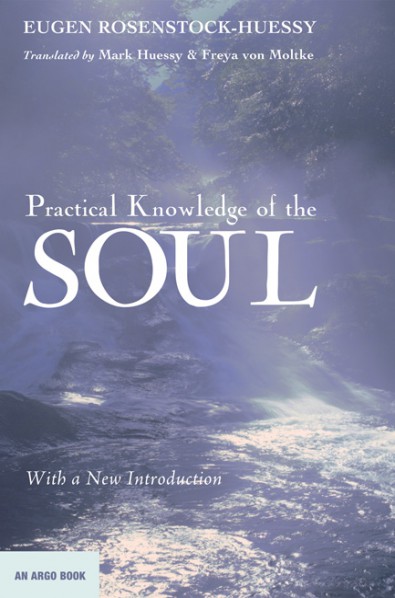Practical Knowledge of the Soul

This book is a translation of Rosenstock-Huessy’s Angewandte Seelenkunde, his first attempt to formulate his new methodology for the social sciences based on the inherent structure of speech, which is the basic social reality.
Rosenstock-Huessy himself wrote: “When Thomas Paine exclaimed: ‘These are the times that try men’s souls,’ he did not mean men’s bodies or men’s minds. And we know it.” In this book devoted to knowledge of that mysterious entity, the “soul,” which neither philosophers nor psychologists will have anything to do with, Rosenstock-Huessy gives that entity essential, practical meaning. Without recourse to anything mystical, transcendental, or poetic, he assures us of the reality of the individual soul for healthy human beings, and connects it to his larger work on an entirely new grammar that elevates to primacy the imperative and vocative forms of speech.
Angewandte Seelenkunde was published on its own in 1924, though it would later appear as the final chapter in the first volume of Rosenstock-Huessy’s epic work on human speech, Die Sprache des Menschengeschlechts. The 1924 work was based on a manuscript Rosenstock-Huessy had written for his friend, Franz Rosenzweig, as part of their correspondence on Judaism and Christianity in 1916. (Rosenzweig later described it as “the main influence” for his masterwork, The Star of Redemption.)
This edition of Practical Knowledge of the Soul brings to light a document long hidden from those who read Rosenstock-Huessy’s works in English. With a new introduction by Hans van der Heiden, Otto Kroesen, and Henk van Olst.
Wipf and Stock, 2015. Paperback, 116 pages.
